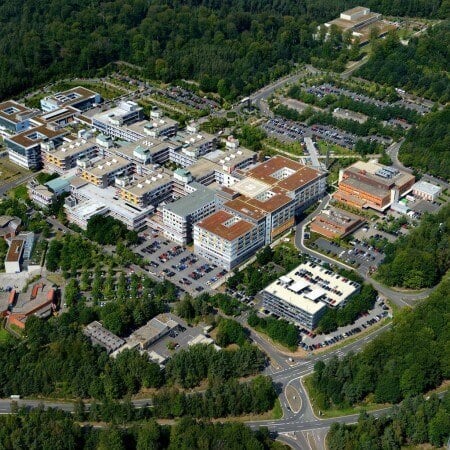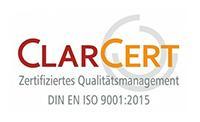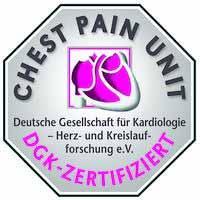Most often, heart diseases result from inflammation, tumors, or vascular lesions. In many cases, when the cause of cardiac pathology is too vague or cannot be determined, the diagnosis "cardiomyopathy" is made. Metabolic cardiomyopathy (previously defined as myocardial dystrophy, myocardiodystrophy) implies myocardial lesion of various etiologies, based on the disruption of metabolism, energy formation process and/or disruption of its conversion into mechanical work, leading to myocardial dystrophy and failure of the contractile and other heart functions.
Content
- Types of cardiomyopathies
- Why does cardiomyopathy occur?
- Patterns of cardiomyopathy formation
- Symptoms of cardiomyopathy
- Diagnosis of cardiomyopathy
- Cardiomyopathy treatment principles
- Surgical treatment options for patients with cardiomyopathy
- Treatment in hospitals in Germany
- The cost of treatment in Germany
Types of cardiomyopathies
According to the modern classification in medicine, cardiomyopathies can be divided into two main types and several characteristic groups. The disease can develop both by itself and as a result of other diseases. In the first case, the causes are often not identifiable, they are hard to establish by conventional diagnostic methods.
Considering the causes that contribute to the development of cardiomyopathies, cardiology specialists distinguishes two main types of this disease:
- Primary from, when the etiology of the cause is not identified.
- Secondary form, with the possibility of determination of the cause of the development of pathological changes in the myocardium.
Classification is also carried out according to the mechanism of development, pathogenesis:
- Hypertrophic.
- Alcoholic.
- Dilated.
- Ischemic.
- Restrictive.
Why does cardiomyopathy occur?
Primary cardiomyopathy can be caused by a viral infection, autoimmune disorders, and idiopathic myocardial fibrosis. Certain types of changes in the human genome can also be a cause. The influence of genetic factors on the occurrence of cardiomyopathy of the heart cannot be determined, since a huge number of proteins are involved in the metabolism of cardiomyocytes. At the same time, pathology develops with the occurrence of changes in only one or a few of them.
The symptoms typical for cardiomyopathy are caused by viral causes of cardiomyopathy development. This theory can be supported by the detection of antibodies, which are found in relation to viral invasion. For example, the immune system responds to cytomegalovirus, the causative agent of hepatitis C, and the Coxsackievirus. All these pathogens can affect the DNA, with subsequent development of pathology of the heart muscle.
The theory of the development of cardiomyopathy by cardiology guidelines as a result of autoimmune shifts in the body is not without foundation. The mechanism of development is related to the perception of myocardial cells as alien to the human immune system. In this case, there is a production of antibodies in the body, directed against cardiomyocytes. This opposite action of immunity can be caused by viruses, bacteria, or different pathologies.
The restrictive form of cardiomyopathy is characterized by myocardial stiffness with a limited filling of the heart chambers with blood. Reduced blood flow leads to diastolic dysfunction, which leads to heart failure with acute restrictive cardiomyopathy. The cause may be idiopathic myocardial fibrosis, cardiosclerosis, in which cardiomyopathy appears. In this case, the diagnosis shows replacement of the characteristic muscle tissues of the heart with connective tissue. They lose elasticity, disrupt the heart rhythm, and are unable to contract. The cause may be inflammatory processes in the myocardium or the suffered heart attack. In this case, the so-called secondary cardiomyopathy occurs.
Secondary cardiomyopathy develops due to pathologies associated with the work of the human cardiovascular system.
The list of these diseases includes:
- CHD (coronary heart disease).
- Infections that lead to destructive changes in the heart muscle.
- Endocrine disorders.
- Arterial hypertension.
- Shifts in metabolism and substance accumulation.
- Electrolyte imbalance.
- Amyloidosis.
- Neuromuscular pathology.
- Severe poisoning.
Patterns of cardiomyopathy formation
The cardiac chamber is dilated in the presence of the following pathological patterns:
- If the number of myofibrils is reduced. These are the main contractile part of the cardiomyocytes. When their number is reduced, the wall becomes less elastic, and when the chamber fills with blood, it is overstretched.
- If the number of cardiomyocytes is reduced. Muscle tissue decreases during the development of cardiosclerosis, which is caused by inflammatory disease or ischemia. Connective tissue has high strength, but it does not contract and does not maintain muscle tone. The first stage of the disease is characterized by excessive stretching of the walls of the organ.
- Nerve regulation is disturbed. Under the action of neuromuscular disease, excitatory impulses are not received. When they enter the blood, the intracameral pressure rises, resulting in a response of the heart in the form of a signal to muscle contractions, there is no signal entry, and there is no contraction of cardiomyocytes.
- Occurrence of electrolyte imbalance. For the myocardium to contract, the blood and the muscle cell must contain sodium, potassium, and chloride ions in normal amounts. Electrolyte imbalance is characterized by changes in the content of the above minerals, as a result of which there is no normal contraction of cardiomyocytes, and the heart chamber expands.
Symptoms of cardiomyopathy
In many patients, cardiomyopathy does not cause any serious health disturbances. However, in some cases, this pathology can cause serious discomforts, such as shortness of breath, chest pain, or fainting.
Patients with cardiomyopathy are likely to develop dangerous heart rhythm disturbances (arrhythmias), such as ventricular tachycardia or ventricular fibrillation. These rhythm abnormalities can lead to heart failure or sudden cardiac death. Cardiomyopathy is the leading cause of death of patients under the age of 30. Fortunately, there are not many such deaths.
Possible complications of hypertrophic cardiomyopathy include:
- Sudden death from cardiac arrest. It is the worst complication of cardiomyopathy that occurs due to ventricular tachycardia or ventricular fibrillation. Unfortunately, this condition is difficult to predict. If patients experience fainting, severe dizziness, or prolonged palpitations, patients should not delay seeing a doctor and seek medical attention.
- Obstructed blood flow. In many patients, a thickened myocardium causes a slowing of blood flow, thus increasing the strain on the heart.
- Mitral valve disorders. Thickening of the heart muscle can decrease the volume of the left ventricle, reducing the free space for blood, which in turn causes blood to flow back through the mitral valve back into the atrium. This is called mitral valve regurgitation. Mitral valve regurgitation can lead to other complications, such as heart failure or arrhythmias.
- Heart failure. Heart failure means that your heart cannot pump enough blood to meet your body's needs. The heart muscle in cardiomyopathy eventually becomes too stiff to work efficiently, leading to dyspnea and heart failure.
Diagnosis of cardiomyopathy
Making an accurate diagnosis is a complicated process. This is because clinical manifestation of the pathology is similar to those of any other heart disease. In most cases, it is difficult to distinguish signs of the primary form from those of the secondary form. Therefore, to make a final diagnosis, the specialist takes into account not only the data obtained during the general examination of patients, but also indicates that patients should undergo an instrumental examination. Once all possible medical information is obtained, the doctor will determine the type of disease and prescribe appropriate treatment measures.
To detect and classify the disease, it is necessary to undergo a physical examination, electrocardiography, and X-rays. During the physical exam, the doctor visually examines the patients, the shape of the chest wall, and measures the pulse, respiratory rate, and blood pressure.
Electrocardiography records how an electrical pulse travels, with the further display on a graph. When the doctors decipher such a graph, they will get information about the structural and functional change that has occurred in the heart.
Echocardiography involves an ultrasound examination of the heart. This examination is more informative during the medical diagnosis of cardiomyopathy. With echocardiography, one can see the heart chamber and the heart wall. Also, using an ultrasound wave, wall thickness, and cavity diameter, and blood flow velocity can be evaluated. The results of the ultrasound may be fundamental to the final diagnosis.
A diagnostic procedure that involves passing a beam of X-rays through the human body is called an X-ray. X-rays show the density of the tissue and the shape and size of the heart. This examination must be done once every six months because the patients receive dosed ionizing radiation during the procedure. Female patients carrying a child are not allowed to have X-rays. There are situations when it is necessary to make an exception with observance of all precautions. This method is not able to determine the form of cardiomyopathy though.
Cardiomyopathy treatment principles
Depending on whether patients have the primary or secondary disease, the doctor chooses a treatment regimen. In addition, the mechanisms that can provoke heart failure are also important. The treatment of secondary cardiomyopathy consists of eliminating the primary disease. In the primary form, heart failure is compensated and heart function is restored. This means that treatment measures must begin after an accurate diagnosis. Patients who report symptoms similar to cardiomyopathy need to be hospitalized. If there are no pronounced symptoms of the disease, the doctor may allow outpatient treatment.
The treatment methods for cardiomyopathy may include drug therapy, surgery, or prophylaxis. Conservative treatment aims at eliminating clinical manifestations. With the help of medicines, doctors of the cardiology hospitals restore normal heart function and compensate for heart failure. If patients have a diseased heart, it is difficult to pump the normal volume of blood. This requires taking ACE inhibitors, beta-adrenoblockers, and calcium channel blockers, or other types of medicines, as prescribed by a physician.
If it becomes necessary, the doctor changes the dosage and adds medications that belong to another group of medicines. This includes taking diuretics, or diuretics that can reduce swelling or relieve pulmonary edema. The intake of aggregating agents prescribed by the doctor is necessary for the fight against thrombosis and for lowering the probability of thromboembolism. It is important to remember that the use of the above drugs should be coordinated with a qualified and experienced specialist. Otherwise, severe complications may await patients.
In extremely rare cases, surgical treatment can be used for cardiomyopathy. In most cases, it is indicated in the secondary form of the disease. The need for this type of treatment should be discussed with a cardiology center specialist.
Surgical treatment options for patients with cardiomyopathy
Interventricular septal resection involves an open-heart surgery, in which the surgeon removes a part of the interventricular septum. This surgery is used if medications do not relieve symptoms.
Electrical ablation is a procedure in which low-frequency currents destroy the areas in the heart muscle involved in the development of heart rhythm abnormalities. Rarely during this manipulation is it necessary to implant an artificial pacemaker to regulate the heart rate. This treatment is very common nowadays.
The pacemaker implantation is a procedure performed under local anesthesia and involves the subcutaneous insertion of a heart rate regulator. It is often used in patients with severe comorbidities for whom open-heart surgery is associated with complications.
Defibrillator placement is a manipulation similar to an artificial pacemaker placement, but in this case, the defibrillator action is aimed at restoring a normal heart rate when a life-threatening rhythm disturbance develops.
Candidates for surgical treatment may be:
- Patients who have suffered a cardiac arrest.
- Patients with a family history of cardiomyopathy.
- Patients with unexplained syncope.
- Patients with extreme thickening of the left ventricular wall.
Treatment in hospitals in Germany
The German health care system, as the first health care system in Europe, emerged in the 1880s. Today, doctors, specialists, and hospitals in Germany make up one of the best health care systems in the world.
Medicine in Germany is based on the main principle of solidarity. Medicine should be accessible to all segments of the population, irrespective of their financial situation, and should be financed by insurance support. Germany has an excellent health care system, and you have the right to receive medical care in hospitals in Germany as well. However, the amount of care provided by hospitals in Germany may vary depending on your residency status.
You can contact Booking Health to learn how to go for treatment in hospitals in Germany.
The cost of treatment in Germany
Here is a list of the average prices for cardiomyopathy treatment in Germany:
- The prices of cardiomyopathy diagnostics start at 473 EUR.
- The cost of treatment with conservative therapy and Holter monitoring starts at 1,735 EUR.
- The cost of treatment with dual-chamber implantation to treat dilated and ischemic cardiomyopathy starts at 11, 670 EUR.
- The cost of treatment with cardioverter-defibrillator implantation starts at 10,783 EUR.
The treatment in Germany with Booking Health is very cost-effective because you decide which services you need and pay only for them.
Booking Health works individually with each client and tries to take into account all your wishes as much as possible. In any case, the price is negotiated in advance, and only after that a contract is concluded.
For more information about the treatment in Germany, fill in the request form on the Booking Health website.
Authors: Dr. Vadim Zhiliuk, Dr. Sergey Pashchenko

















